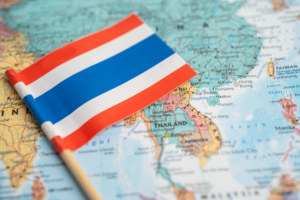Introduction
Joint ventures (JVs) have emerged as a favored investment approach in Thailand, enabling both local and foreign enterprises to join forces and capitalize on each other’s assets and expertise. In this article, we will delve into the current trends and transformations in JVs within Thailand, encompassing market dynamics, prominent industries, varieties of JV structures, regulatory landscapes, negotiation documentation, and noteworthy legal advancements.
Market Trends
Thailand has witnessed a surge in strategic JVs in recent times, propelled by the objectives of diversification and asset allocation. Businesses have actively pursued merger and acquisition opportunities in fresh sectors such as technology, e-commerce, renewable energy, healthcare, and life sciences. The digital revolution, accelerated by the COVID-19 pandemic, has further fueled the growth of JVs in Thailand.



Key Industries
Several sectors have taken the lead in terms of JV activities in Thailand, including technology, telecommunications, industrial manufacturing, automotive, financial services, energy, healthcare, and real estate. These industries align with prevailing trends in mergers and acquisitions, technological innovations, emerging enterprises, and legal constraints on foreign ownership


Types of Joint Venture (JV) Structures
The overwhelmingly favored form of JV structure employed in Thailand remains the private limited company. While partnerships and consortia are options, they are less commonly utilized due to concerns regarding liability and limited flexibility. Private limited companies offer various advantages, including distinct legal identity, limited liability, continuous business operations, ease of interest transfer, and an established corporate governance framework.
Regulations
The regulatory framework overseeing JVs in Thailand encompasses the Civil and Commercial Code, the Securities and Exchange Act, the Public Limited Companies Act, Anti-Money Laundering (AML) laws, considerations of national security, competition regulations, and disclosure prerequisites. These regulations are designed to ensure compliance, safeguard national security interests, curb money laundering, and uphold fair competition within the market.
Legal Developments
Recent legal developments encompass alterations in merger regulations, the reduction of the minimum required number of shareholders for private limited companies from three to two, and the recognition of electronic meetings. These changes aim to streamline business processes, alleviate administrative burdens, and facilitate efficient decision-making for JV participants.


Conclusion
Joint ventures continue to exert a significant influence on the Thai business landscape, providing avenues for both local and foreign enterprises to collaborate and foster growth across diverse industries. As the regulatory environment evolves and noteworthy legal developments persist, staying well-informed and adapting strategies accordingly is crucial for JV participants. With Thailand’s economy rebounding from the repercussions of the COVID-19 pandemic, JVs are poised to maintain their status as a favored investment approach for businesses seeking growth opportunities and market access.
From a legal standpoint, assets contributed by a participant and those originating from the joint venture (JV) itself are considered indistinguishable, as both are regarded as assets of the JV company. Nevertheless, when it comes to asset valuation, assets contributed by the participants may utilize their original valuation at the time of transfer to the JV (at the outset) as a baseline for the valuation process.

